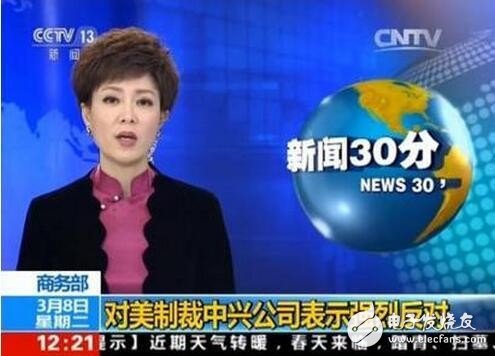The weather is getting colder and colder, and we are gradually coming to the end of 2016. Looking back on this year, the electronics industry has not been so exciting, and major industry events have occurred one after another, both rejoicing and worrying. Among them, the supercomputer of the independent chip "Shenwei Taihu Light" won the global super-computing Top500 champion, Huawei Polar Code was selected as the final program of 5G control channel eMBB scene coding, let the people see China's strength in the high-tech field. ZTE’s sanctions by the United States have also made everyone face up to the situation of “the lack of core and less screen†in China.
Looking back on 2016, what have happened in the electronics industry? The following OFweek Electronic Engineering Network Xiaobian takes you back to the major news events that took place this year.
ZTE is sanctioned by the "lack of core"
On March 8, the US Department of Commerce announced on its official website that it would include Chinese companies such as ZTE in the “entity list†on the grounds of violating US export control regulations, and adopt restrictions on exports to ZTE. This export restriction is that during the specified period of time, US suppliers must apply for permission from the US Department of Commerce before exporting any goods to ZTE. From the past, these applications will be rejected.

Subsequently, the Chinese Ministry of Commerce and ZTE issued a statement:
China's Ministry of Commerce: expressed strong dissatisfaction and resolute opposition.
ZTE: 1. As a global company listed in Shenzhen and Hong Kong, ZTE is committed to complying with international industry practices and laws and regulations of the host country. 2. ZTE has been actively cooperating with all relevant agencies in the United States and will continue to cooperate. Attitude, while maintaining communication with all parties concerned, and striving to find a solution to the event as soon as possible.
It is reported that this incident originated from ZTE’s alleged violation of the US export control policy against Iran. This is actually an old case. In 2012, ZTE had involved signing a multi-million dollar telecom equipment with a Iranian telecom operator. contract. Immediately after the United States launched an investigation, the equipment was not delivered by ZTE. Even so, after four years, it still suffered severe punishment from the United States.
Follow-up development
On March 24, under the efforts of the Chinese government and ZTE Corporation, the US Department of Commerce announced that it would give ZTE and ZTE Kangxun, the company responsible for ZTE's procurement, a temporary license.
On June 27, the US Department of Commerce said that the delay in the execution of the China ZTE export ban was postponed again.
In August, ZTE announced that the US Department of Commerce had made an extension decision on its export restriction ban, and the temporary license was extended to November 28, 2016.
Opinion: The US sanctions against ZTE can be said to have allowed ZTE to withstand a 100% blockade from the upstream industry chain. Qualcomm and other chip companies cannot sell chips to ZTE, and ZTE itself does not have a mobile phone chip business. Therefore, sanctions It is tantamount to letting ZTE fall into a situation where no "core" is available. The incident fully exposed the weakness of the prosperity of China's smart phone market. As a core component of electronic products such as smart phones, China's strength in this area is weak, and a single piece of sanctions can make a company feel "the end of the road." ZTE’s sanctioned incident has sounded alarms for Chinese chips, smart phones and other industries. Relying on imported chips is equivalent to exposing one’s own life to others. To get rid of this controlled fate, it is necessary to break the “lack of core†situation. Have their own chips. If there is a "sell", then there is a "buy". Imported chips must be sold before they can be reached. When the seller is unwilling to trade, it is really money and useless. Only the independent research and development puts the core technology in their hands, China's IC industry. In order to grasp their own destiny.
Xenon Lamp Aging Test Chamber,Xenon Lamp Aging Light Tester,Photovoltaic Module Test Box,Xenon Lamp Aging Testing Machine
Wuxi Juxingyao Trading Co., Ltd , https://www.juxingyao.com
